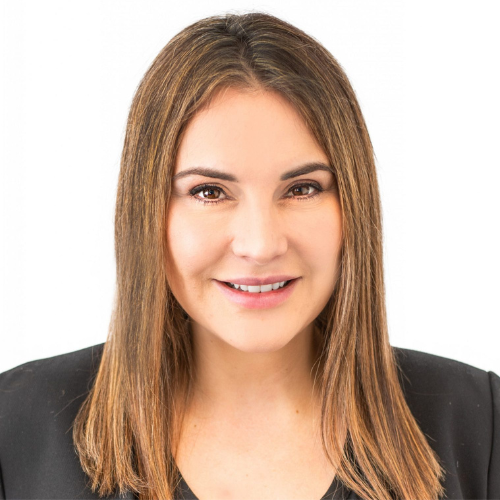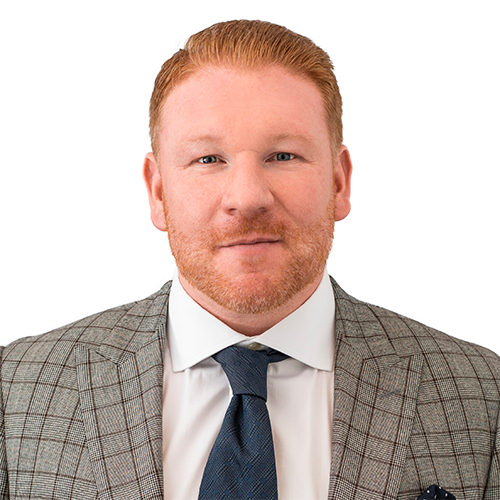Episode 36 – February 1, 2022
Listen On: Apple Podcasts | Spotify | Google Podcasts | YouTube
Ever wonder what commercial asset class has the lowest CAP rate but offer the most stable returns? This week Cory and Matt welcome Marianne DeCotiis, a multifamily specialist with William Wright Commercial’s Fraser Valley office. Tune in as Marianne breaks down the multifamily asset class, sharing how its funded, how the leases are government regulated, and plenty more! Marianne also walks you through why demand for this asset class how been so consistent and how CAP rates have hit historical lows, yet demand continues to grow. Multifamily operates a lot differently than most commercial asset classes and Marianne unpacks why that is.
Listen to Episode
Guest Information

Marianne DeCotiis
Marianne DeCotiis specializes in land & investment properties, retail & office leasing and sales throughout the Metro Vancouver and the Fraser Valley markets. Marianne brings over 11 years of real estate experience to William Wright and her vast knowledge helps her clients excel in today’s market.
Prior to joining WWC, Marianne was a residential realtor for 10 years with Sutton West Coast, selling re-sale homes and working in the pre-sale home market. Her vast experience with developers prepared her to turn her focus on the commercial aspect of the real estate market.
Episode Summary
Who is Marianne DeCotiis?
I’ve been in real estate for over 15 years. Real estate is in my blood; my dad convinced me that there was no other profession in the world. So I took his advice and I haven’t looked back. I like working with all sorts of people and understanding what their needs are.
How does multifamily operate differently from other commercial real estate property types?
With multifamily you have different financing options, such as with CMHC. CMHC can offer lower interest rates, longer amortization and a smaller down payment in some cases. However, CMHC does require certain qualifications. The building has to be a certain number of units, there’s a base loan amount required and the building must cash flow. This lending is not available to everyone but it’s a nice alternative to conventional lending if you do qualify.
Down payments are on a case by case basis. I have some clients who are able to only put down 15% because they have a good track record.
What kind of amortization rates does CMHC offer?
Every scenario is different so it’s hard to say. It really depends on the building, the number of units and if it cash flows. For anyone interested in multifamily financing, I’d recommend talking to a mortgage broker. That’s the first place to start.
At what point is a building considered multifamily? When does a building go from residential to commercial?
Five units and more is considered a multifamily building under commercial real estate. With four units or less, you would still be considered residential.
How do leases under the Residential Tenancy Act work in multifamily properties?
Once you sign a lease with a residential tenant, you can only increase their rent by the set amount. This year it was only 1.5%. This can be a disadvantage if other fees, like property taxes or insurance, go up. This is unlike in other commercial properties with triple net leases, where the rent is based on your operating costs.
On the plus side for multifamily, vacancy rates are very low. Someone always needs a place to live. So multifamily can be a less risky investment in that sense. We live in the most beautiful city in the world and housing prices here are so high. Renting is the only option for many people, so demand is high.
Multifamily is also great for investors because they can start small with just five units and then work their way up.
Can landlords charge their tenants for building repairs?
In 2018, the BC government introduced a capital expenditure allowance that landlords can use to charge major repairs back to their tenants. If a landlord had to replace something major, like the heating system, they can submit that cost to the Rental Tenancy Branch and be approved to charge their tenants up to 3% per year to help cover those capital costs. This encourages landlords to maintain their buildings since they can recoup some of the costs.
Keep your finger on the pulse of Vancouver’s real estate market with our Live Wire email newsletter.
What happens to the multifamily real estate market if interest rates increase?
If interest rates increase, it will definitely impact cap rates in multifamily. It doesn’t make sense for someone to buy a 3% cap rate property if interest rates are at 3%. I don’t think demand will dry up but investors may start to look at other avenues. Prices may come down to increase cap rates, but I don’t think buyer demand will dry up since we currently have such a supply issue.
Who is buying multifamily properties?
I work with both small investors and larger corporations. I do work with a lot of mom and pop buyers. I’m seeing a lot of investors who had a property, refinanced and are now able to invest in multifamily.
How much does it cost to get into multifamily real estate? How is multifamily priced?
Multifamily prices vary a lot by place and number of units. If you’re looking at a place like Campbell River with a low vacancy rate, you can get into 16 units for $3.2 million. It also depends if a property has development potential.
I would say anywhere from $3-5 million, depending on the number of units, is the entry level price for multifamily. If you go outside the Lower Mainland, you can get 16 units for the same price as you could get 6-7 units in somewhere like New Westminster.
What markets are multifamily investors interested in?
I’m seeing a lot of demand for multifamily buildings in Kelowna, Victoria, Port Coquitlam and Maple Ridge. In Vancouver, there’s less demand because cap rates are quite low.
As an investor, you can follow the path of progression to know where to buy.
For example, people are getting priced out of rentals in Nanaimo, so they may be going to Parksville or Courtney. In Vancouver, people who are priced out go to Burnaby, then New West and then further into the Fraser Valley. If rents go too high, people will move to the next city.
We’re seeing transactions in Chilliwack with cap rates under four. A few years ago, it was probably 5-6%.
How can you increase value in multifamily real estate?
Sometimes multifamily buildings are mismanaged so if you change how you operate, you can save money. You can upgrade systems to help with management costs. There may also be rezoning and development potential, which can increase value.
What are “renovictions” and how are cities regulating them?
Cities have definitely put a stop to the practice of “renovictions” – kicking out long term renters to do renovations and then relisting rentals at market rates. Cities got a lot of complaints so have pretty much put a stop to this practice.
Communities that still do allow renovictions have strict rules in place where you have to pay the tenants to leave and allow them to move back in at the same rate they were paying. Of course, that deters a lot of landlords from taking on a renoviction project.
What are multifamily buyers looking for?
Some multifamily buyers want all of the capital improvements done so they don’t have to worry about their building. Those buyers are getting a lower cap rate because their building is turn-key. Other buyers want to do the upgrades themselves and capitalize on those improvements. They buy at a bit higher of a cap rate.
Keep your finger on the pulse of Vancouver’s real estate market with our Live Wire email newsletter.
Episode Host

Cory Wright
Cory is the founder and Managing Broker of William Wright Commercial. Since its inception in 2013, he has successfully closed over $500,000,000 in commercial investment properties ranging from large-scale open-air shopping centers to highly desirable Vancouver development sites and everything in between.

Matt Scalena
Matt is real estate obsessed and considers himself a lifelong student of the Vancouver real estate market. As a co-manager of the Scalena Real Estate team, Matt prides himself on expertly advising buyers and sellers on all aspects of the fast-paced, dynamic Vancouver real estate market. He is present at every stage of the process, from that first phone call or email right through to when keys are exchanged between sellers and buyers.






